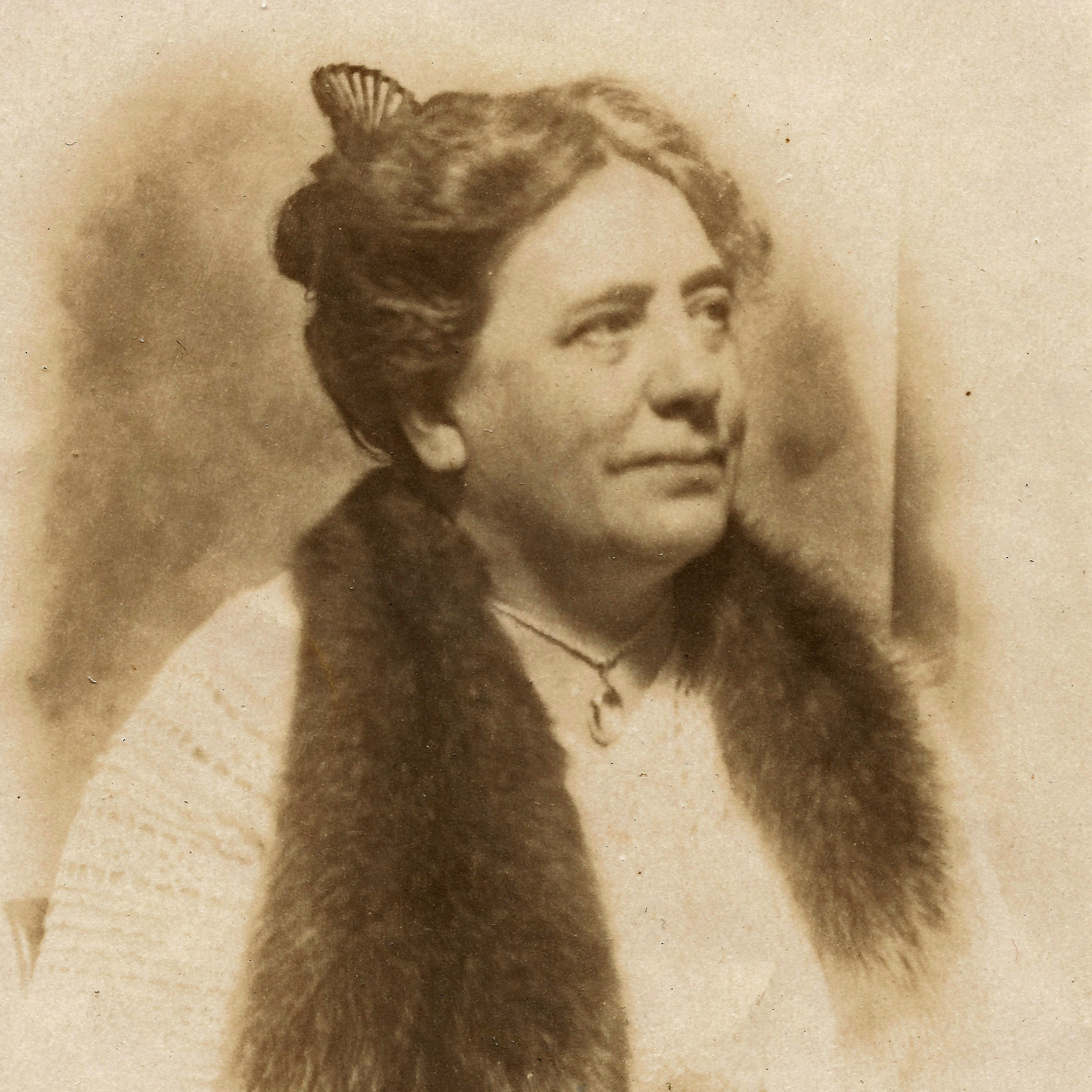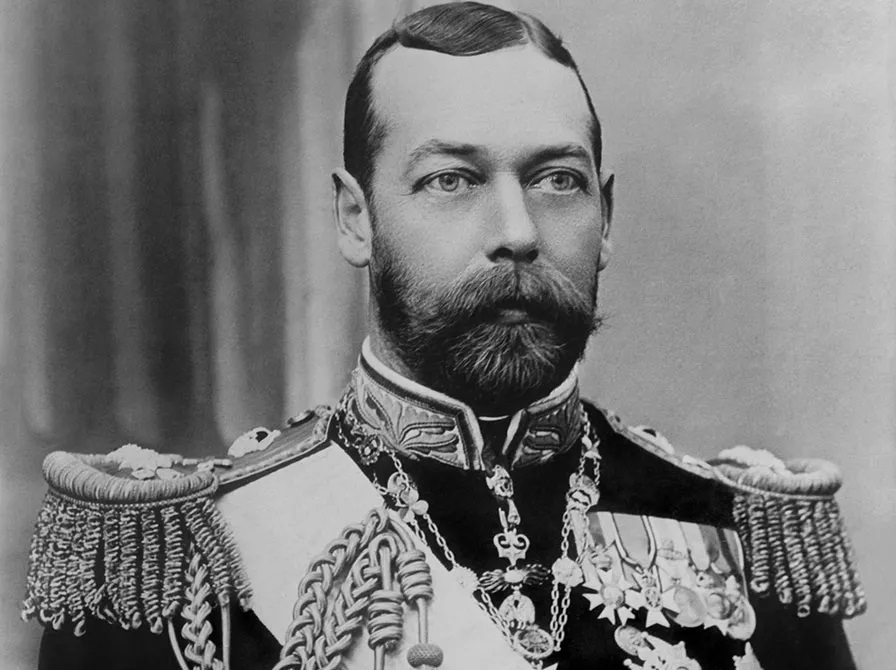Vote for Octavia?
A century ago, serious thinkers like Mabel Barltrop had no qualms about accepting an overlap of truth between Christianity, Astrology, Numerology, and Theosophy. Similarly, some held political beliefs about which we now have serious doubts. Mabel Barltrop’s political thoughts, perhaps not surprisingly, were based on convictions that many nowadays would find difficult, even though she felt her arguments were well thought-through and undeniable.

Mabel’s political preferences were shaped by her middle-class high Victorian upbringing, with a natural inclination towards Conservatism, Anglicanism, Empire and the Queen. Although this vision of the world was disappearing by the 1920s, the late Victorian/Edwardian attitudes were ingrained to the extent that her politics as well as her social attitudes were of a bygone age. There was no place for modern ideas such as Socialism or Communism in her fixed world picture. Many followers were of a similar outlook, and although we disapprove of it strongly nowadays some aspects were extremely racist. The Society favoured right-wing newspapers such as the Morning Post and some members such as Cyril Carew-Hunt took part in right-wing activities.
However, the basis of her political stance was perhaps more that of a medieval fundamentalist than a Victorian. She considered politics to be “useless…merely legalised opinion-mongering.” In various articles in “The Panacea” magazine she wrote of her rejection of Democracy (“It causes a kingdom to be divided against itself ….the world is composed of so many million people, mostly fools”), reducing the minimum age for the vote (“it has never been right for the child to rule the parent”) and disappointingly for those who see the Society as early Feminism, she was sceptical about Women’s Rights (“Man must rule the home and the true woman likes it so; she is content to be ruled for intuitively she feels she needs the stronger mind which keeps her on wise lines”).
In summary, “all Panacea people must think alike…it is perfectly useless to be a Conservative or a Liberal or a Socialist or a Communist…or to believe in Democracy or that any one of these will make any contribution to the improvement of world conditions.” This seems a bleak philosophy, but she had a solution: “Monarchy, divinely organised, is God’s intention for Britain… Democracy is already on its death-bed.”
Interestingly, in Rachel Fox’s book “How we built Jerusalem…” detailing the history of the Society, she quotes Mabel saying “Thought is a most deadly thing” and of course, part of the Sealing process included the “destruction of the mortal mind.” Clearly, although she said that politics, democracy and voting were irrelevant, and members should not think about such things, it didn’t stop her having and expressing her own opinions. In 1924 she told a member who was a Labour supporter that if he didn’t abandon that preference, he must leave her community. In the 1931 election, such was her determination to be rid of the “Labour threat” (as she saw it) that she instructed members to vote Conservative. Previously she had told members that they should not vote at all.
There was a logic behind her thought process. In the 1920s and early 1930s she approved of the Conservative Prime Minister Stanley Baldwin not just because he was against Socialism, Communism and Union strike action, but also because he seemed to connect politics with religious beliefs. He wrote (as quoted in the Panacea magazine) “The ultimate goal of the British Empire is the Kingdom of Heaven on Earth…Some day the Kingdom of Heaven will come on earth. If we cannot hold in the most difficult times to an ideal of that kind…as a people we shall go down and perish for lack of vision.”
 Joanna Southcott's Box
Joanna Southcott's BoxThis attitude would be attractive to someone who was campaigning to have Joanna’s Box opened, and bring about the Millennium. Like Mabel, Baldwin considered that the “manifest forces of Satan have been conspicuously at large” since The Great War. Although she considered Socialism to be a manifestation of Satan’s influence, she saw a glimpse of positivity when a Labour government was in power, because although “a nation that took the Bible for its guidance would never have a Labour government” the chaos that would follow might bring about the upheavals from which the Millennium would come.
Although she dismissed the relevance of elections, she was so offended when the 1929 election didn’t go the way she wanted, she appointed a “Spiritual Cabinet.” In her world, she appointed Baldwin as her Prime Minister virtually in perpetuity, despite him having been replaced in the real world. Perhaps this was done in a playful rather than a serious way, but you can’t help seeing this as a 1920s version of people playing at forming their “Fantasy Football” teams.
Members were, indeed, generally asked to “vote for Octavia” rather than be allowed to vote for political parties as she considered the democratic process as an irrelevant sideshow compared with the serious business of her mission. For her, if a country must have some kind of earthly ruler, this should only be done by Kings… “I declare that Absolute Monarchy is the only cure for Representative Government, and I maintain that only Kings can rule.” This attitude helps explain the genuine enthusiasm with which members supported the Royal family and the well-being of the king, even to the extent of hiding some linen sections on royal premises.
 King George V
King George VMabel wrote about King George V: “the world must be ruled by a man who is kin to David, and that man is George V. Britain’s throne is the only throne ever established by God.” For her, this divine authority was important at a practical level, as a way to govern a country; the most important thing to bear in mind, however, was that she should work to bring about the day of Revelation, when the true ruler Jesus would return.
Just as she could easily value Astrology and Numerology in her religious beliefs, so too could she consider such ideas as the Divine Right of Kings as undeniable in political matters. In both spheres of Thought she was firmly from a bygone age which seems out of kilter with the modern world.






